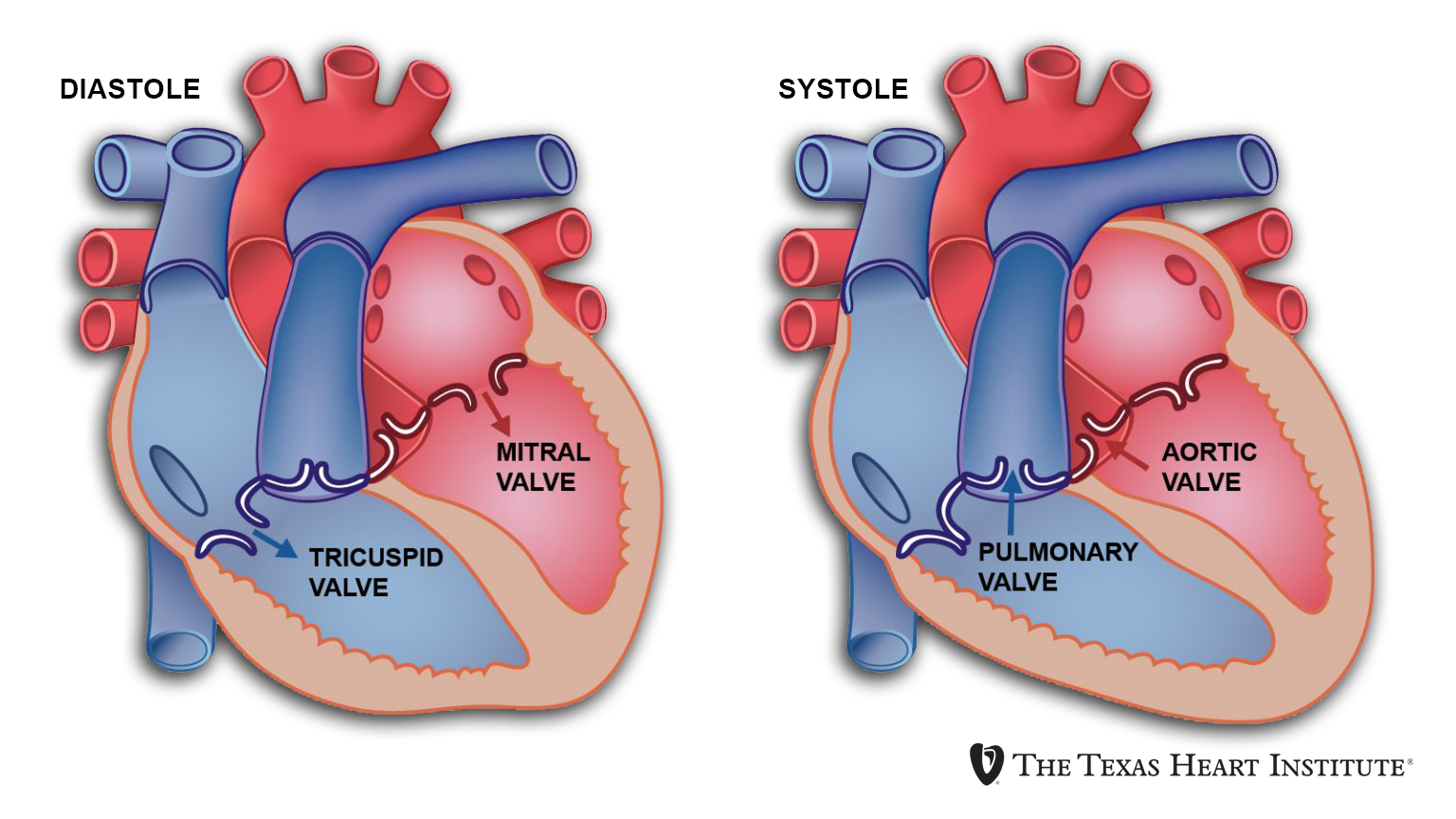Diseases of the Mitral Valve
The mitral valve regulates the flow of blood from the upper-left chamber (the left atrium) to the lower-left chamber (the left ventricle). Three diseases of the mitral valve are mitral valve prolapse, mitral regurgitation, and mitral stenosis.

Diseases of the heart valves are grouped according to which valve or valves are involved and the amount of blood flow that is disrupted by the problem. The most common and serious valve problems happen in the mitral and aortic valves.
The mitral valve regulates the flow of blood from the upper-left chamber (the left atrium) to the lower-left chamber (the left ventricle).
Three diseases of the mitral valve are mitral valve prolapse, mitral regurgitation, and mitral stenosis.
Mitral Valve Prolapse
Mitral valve prolapse (MVP) means that one or both of the valve flaps (called cusps or leaflets) are enlarged, and the flaps’ supporting muscles are too long. Instead of closing evenly, one or both of the flaps collapse or bulge into the left atrium. MVP is often called click-murmur syndrome because when the valve does not close properly, it makes a clicking sound and then a murmur.
What causes MVP?
MVP is one of the most common forms of valve disease. It also runs in families. Some forms of MVP have been associated with Marfan syndrome, a connective tissue condition where patients have long bones and very flexible joints. Most people with MVP are small-framed or have minor chest wall deformities, scoliosis, or other skeletal disorders.
What are the symptoms?
Most people with MVP do not have symptoms. When symptoms do happen, they may include
- Shortness of breath, especially when lying down
- Chest pain
- Extreme fatigue
- Heart palpitations
- Coughing
- Trouble breathing after exercise
- Rapid heartbeat or tachycardia (this is rare)
Most of the time, MVP is not a serious condition. Some patients say they feel palpitations (like their heart is skipping a beat) or sharp chest pain. If you have MVP, let your doctor know if you are going to have dental or general surgery so he or she can use current guidelines about taking antibiotics prior to surgery.
Mitral Regurgitation
Mitral regurgitation is also called mitral insufficiency or mitral incompetence. It happens when the mitral valve allows a backflow of blood into the heart’s upper-left chamber (the left atrium). Mitral regurgitation may take years to reveal itself. But, if it goes on long enough, it can cause a buildup of pressure in the lungs or cause the heart to enlarge. In time, this will lead to symptoms.
What causes mitral regurgitation?
Mitral regurgitation is usually caused by conditions that weaken or damage the valve. The most common causes of mitral regurgitation in adults are listed below.
- Valve damage from rheumatic fever during childhood.
- Injury to the mitral valve after a heart attack.
- Injury to the mitral valve from an infection of the heart’s inner lining (called infective endocarditis).
What are the symptoms?
In most cases, symptoms come on slowly. They may include
- Heart palpitations (the feeling that the heart has skipped a beat)
- Shortness of breath
- Fast breathing
- Chest pain
- Coughing
- Fatigue
If you have mitral regurgitation, you should talk to your doctor about taking antibiotic medicine before dental procedures or general surgery. The medicine will prevent infection of the valve. Mitral regurgitation may also lead to heart failure, stroke, irregular heartbeat (arrhythmia), and blood clots in the lungs (pulmonary emboli).
Mitral Stenosis
Mitral stenosis is a narrowing or blockage of the mitral valve. The narrowed valve causes blood to backup in the heart’s upper-left chamber (the left atrium) instead of flowing into the lower-left chamber (the left ventricle). Most adults with mitral stenosis had rheumatic fever when they were younger. Mitral stenosis may also be associated with aging and a buildup of calcium on the ring around the valve where the leaflet and heart muscle meet.
What causes mitral stenosis?
Mitral stenosis is usually caused by rheumatic fever, but it can be caused by any condition that causes narrowing of the mitral valve. The condition is rarely passed down through family members.
What are the symptoms?
Most people with mitral stenosis have no symptoms. When symptoms do happen, they may get worse with exercise or any activity that increases your heart rate. These may include
- Trouble breathing at night or after exercise
- Coughing, which sometimes produces a pinkish, blood-tinged sputum
- Fatigue
- Chest pain that gets worse with activity and goes away with rest
- Frequent respiratory infections such as bronchitis
- Heart palpitations (the feeling that the heart has skipped a beat)
- Swelling (edema) of the feet and ankles
- A hoarse or husky-sounding voice
Symptoms may begin with an episode of atrial fibrillation. Pregnancy, a respiratory infection, endocarditis, or other cardiac conditions may also cause symptoms. Mitral stenosis may eventually lead to heart failure, stroke, or blood clots to various parts of the body.




